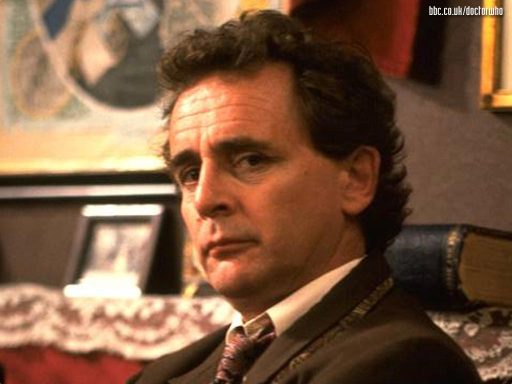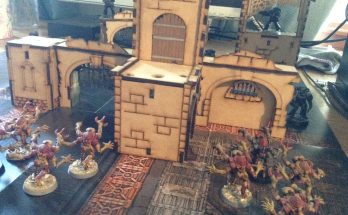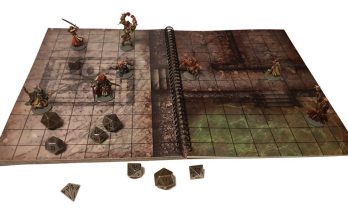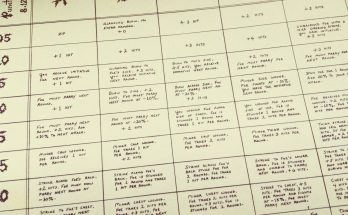Fourth Edition D&D is brilliant. I have said it, and mean it sincerely too. History will look back at your tenure of the D&D name in much the same way we look back at Sylvester McCoy’s Doctor Who, a spark of sheer magic ill-recognised at the time.
 Sylvester McCoy, the 4e of Doctor Who
Sylvester McCoy, the 4e of Doctor Who
As an aside, in my mental image of each Edition of D&D as Doctor Who, White Box is William Hartnell, Red Box is Patrick Troughton, Molvday is Jon Pertwee, AD&D is Tom Baker, 3e is David Tennant and #DnDNext is Matt Smith.
Where was I? Oh yes……..
As with any Edition of the game, 4e is a product of the age which wrought it. Just like the Naughties decade in which is was born, 4e is bright and brash but for many people turned out to be an altogether shallow affair. Fourth Edition promised us much, and to its credit it lived up to many of those promises whether we wanted it to or not.
Yet to those of us who dug deeper, 4e delivered. The character generation stands up as being one of the most flexible systems D&D has ever seen. The rules themselves are solid; compare the number of clarifications and questions asked of Third Edition on forums in its heyday with that of 4e, and I would argue there is a dramatic drop. The 4e rules are both simpler and more consistent. The one fly in that particular ointment was the overly aggressive push of Errata (sorry, I mean “Updates”) down our throats by the Coastal Wizards. I’m convinced that these regular (and largely pointless) Errata dumps did more to harm the system than improve it. If it ain’t a typo or a major fubar (the Skill DCs, for example) leave well alone guys, and fix on next printing.
4e is the product of taking the road travelled by Third Edition to its natural conclusion. It offers us a system where Battlemats and Minis are the norm, and your PCs are Heroes with a capital H first, foremost and central. Every class is has its own special set of abilities and Powers so that even a lowly Fighter has the same boasting rights as a Wizard. That’s a laudable goal, but not without its own set of problems. To paraphrase The Incredibles: when everyone has Powers, no one has. I’m sure there’s a lesson to be learned in there somewhere.
Was 4e truly a system for everyone? No, certainly not. But no Edition of D&D ever is, and that is just as it should be. We all have our game preferences and nuances and it’s to the full credit of Dungeons & Dragons that we have Editions (and clones, and retro-clones, and Pathfinder, and whatnot) that cater for all. This is a strength, not a weakness as it is so often made out to be. D&D is your game, however you want to play. There is an Edition for all, and for everyone an Edition.
Oh Fourth Edition. You will forever remain in my heart alongside your fellow brother Editions of Dungeons & Dragons as yet one more brilliant, but flawed, gem of a game.
Here’s to you sir. Here’s to you.




Brilliantly said. I still enjoy 4e, and wish it had taken hold in the community more.
I have been trying to say this to some people and they do agree. Like you say everyone has their own preferred version. Good article.
Looking at the newest rendition of Gamma World and how awesome it is, I’m convinced that if 4E came out under some other name other than Dungeons and Dragons folks would have claimed it was the best thing since sliced bread. It’s not perfect. The powers begin to clutter up the table and combats at times can grind to a crawl. But there is so much that it does right, and hopefully a lot of it will be around with DnDNext.
I think a bit more needs to be said. This was the first edition to truly look at the ills of the past and try to address all of them. All of them. Monsters being simple to run for a new DM, even when they used magic. Monsters not being boring while having iconic species aspects. Monsters you couldn’t easily re-use beyond their printed level. Encounter design being too complex. PCs being too vulnerable at low levels. High level play not being core design. Lack of common principles between PC level and monsters/treasure/traps/terrain/etc. Lack of balance between caster and non-caster classes. Lack of interesting class features for non-caster PCs (especially as they leveled). Dependence on a healer (especially cleric). Players feeling forced to have one of them play a cleric. Problems when a cleric wanted to fight instead of heal/Clerics spending standard actions to heal. The list keeps going. It is an impressive list. Not everything was done without fault (PCs are too invulnerable, for example), but the innovations are very impressive.
Yes! I absolutely love the incarnations of the Doctor as the editions of D&D (even if I like 4e a lot more than Sylvester McCoy) – everyone has their favorite, but the truth is I’d rather be playing any edition of D&D than doing something else.